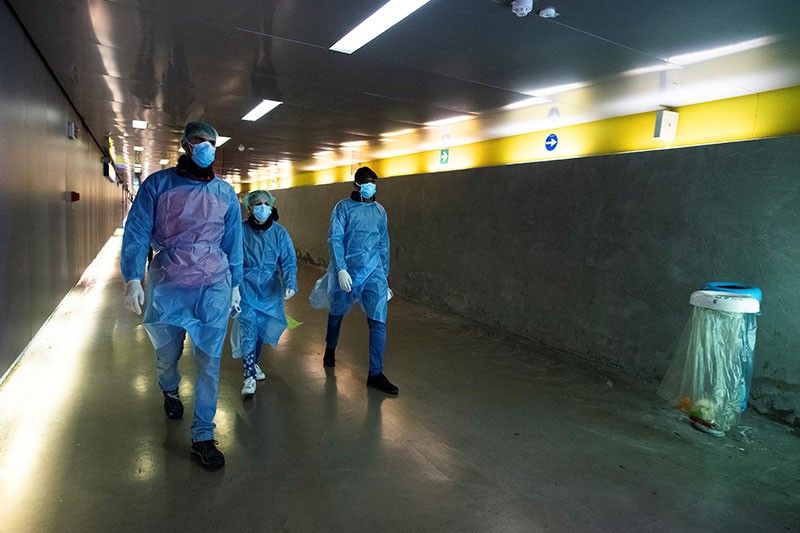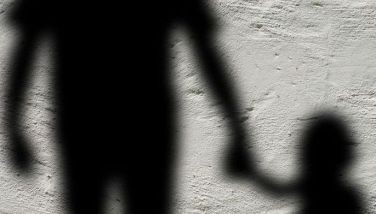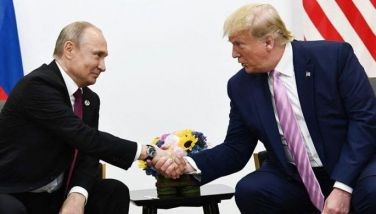Italy offers free virus vaccines, starting with doctors

ROME, Italy — Italy will give all its citizens free vaccinations against coronavirus starting with doctors and care home residents once the jabs are approved, its health minister said Wednesday.
The immunisation drive is expected to begin in the spring. Italy will get its vaccines via an EU procurement programme and is waiting for the European Medicines Agency's green light, Roberto Speranza said.
Britain on Wednesday became the first western country to approve a COVID-19 vaccine for general use, announcing the rollout of a vaccine developed by Germany's BioNTech and its US partner Pfizer from next week.
Meanwhile Europe's medicines regulator has said it will decide by December 29 whether to grant emergency approval to Pfizer-BioNTech's jab, ahead of a rival treatment from Moderna.
The latest timeline suggests Europeans would be lucky to receive the first jabs before the year is over.
Nonetheless, Speranza said: "We can finally see light at the end of the tunnel."
"The vaccine will be distributed to all Italians for free. It will not be obligatory at first. The government will be monitoring how the campaign progresses," he added.
Italy, the first European country to be hit hard by the pandemic early this year, has been battling a new surge in infections in recent months that has taken the total death toll past 56,000.
Shops, restaurants and bars in the worst-affected regions have been shut and a nationwide curfew was imposed, measures that Speranza said had brought infection rates down.
But he said Italians should prepare for restrictions to continue over the Christmas holidays.
"I warn you now: do not mistake the first ray of sunlight for an escape from danger," he said, adding: "If we let down our guard now, the third wave is just around the corner."
Speranza did not give concrete details of new measures that are due to come into force when the previous restrictions expire this week.
'Discouraged'
But he said international travel over the festive season "should be discouraged" and travel between regions would likely be banned — a blow to those hoping to join their relatives in other parts of the country.
All movement between towns is expected to be forbidden on Christmas Day and December 26.
The Italian government is also joining Germany's push for a ban on ski holidays across Europe over Christmas, amid fears resorts could become a major source of coronavirus infections. But it faces opposition from regional leaders, while Austria has said it would be economically disastrous.
"It will be necessary to avoid potential gatherings in places of tourist attraction linked in particular to skiing activities," Speranza said.
The health minister said Italy has signed contracts for vaccines from AstraZeneca, Johnson & Johnson, Sanofi, Pfizer, CureVac and Moderna.
Once approval comes, doctors and health care workers will get the first doses — some 1.4 million people — followed by residents in care homes — just over 570,000 people.
Those aged over 80 will be next in line, followed by those aged between 60 and 79 years old and those suffering from at least one chronic disease.
Vaccines will then be distributed to key workers — teachers, police, prison wardens — before being offered to the general population at walk-in centres.
Speranza urged all lawmakers in Italy, where campaigners against vaccination are very vocal, to get behind the immunisation push.
"There's no government majority or opposition on this, there are simply Italians," he said.
Pharma giants Sanofi and GSK said on July 29, 2020, that they have agreed to supply Britain with up to 60 million doses of a potential COVID-19 vaccine. The agreement covers a vaccine candidate developed by France's Sanofi in partnership with the UK's GSK and is subject to a "final contract."
This thread collects some of the major developments in the search for a vaccine to ease the new coronavirus pandemic. (Main photo by AFP/Joel Saget)
As negotiations towards a new pandemic treaty pick up pace, observers warn of watered-down efforts to ensure equitable access to the medical products needed to battle future Covid-like threats.
Shaken by the pandemic, the World Health Organization's 194 member states are negotiating an international accord aimed at ensuring countries are better equipped to deal with the next catastrophe, or even prevent it altogether.
The process is still in the early stages, with the aim of reaching an agreement by May 2024.
But critics warn that revisions being made to the preliminary negotiating text are weakening the language -- notably in a key area aimed at preventing the rampant inequity seen in access to vaccines and other medical products during the Covid pandemic.
"I think it is a real step backwards," Suerie Moon, co-director of the Global Health Centre at the Geneva Graduate Institute, told AFP. — AFP
Africa's first mRNA vaccine hub is ceremonially launched on Thursday to acclaim from the UN's global health chief, who hailed it as a historic shift to help poor countries gain access to life-saving jabs.
The facility was set up in the South African city of Cape Town in 2021 on the back of the success of revolutionary anti-Covid vaccines introduced by Pfizer/BioNTech and Moderna.
"This precious project... will bring a paradigm shift in addressing the serious problem we faced, the equity problem, during the pandemic, so (that) it's not repeated again," World Health Organization (WHO) head Tedros Adhanom Ghebreyesus tells a media briefing to mark the inauguration. — AFP
China has approved its first locally developed messenger RNA (mRNA) vaccine against Covid-19, its manufacturer said Wednesday, months after the relaxation of strict Covid-zero regulations sparked a surge in cases.
The vaccine, developed by CSPC Pharmaceutical Group Ltd, has been approved for "emergency use" by Beijing's health regulator, the company said in a statement.
It showed high efficacy in a trial in which it was used as a booster shot for people who have been given other types of vaccines, the company added, without offering further details. — AFP
COVID-19 vaccine maker Novavax raises doubts about its ability to continue its business, announcing plans to cut spending after struggles in rolling out its coronavirus jab.
Shares of Novavax plummeted 25 percent in extended trading, after the company reported fourth-quarter earnings that missed analyst estimates.
While the firm should have enough money to fund operations, the situation is "subject to significant uncertainty," it says in a statement. — AFP
The protection against Covid-19 from being previously infected lasts at least as long as that offered by vaccination, one of the largest studies conducted on the subject says.
Ten months after getting Covid, people still had an 88% lower risk of reinfection, hospitalisation and death, according to the study published in the Lancet journal.
That makes this natural immunity "at least as durable, if not more so" than two doses of Pfizer or Moderna's vaccines, the study says.
The authors nevertheless emphasized that their findings should not discourage vaccination, which remains the safest way to get immunity. — AFP
- Latest
- Trending






























